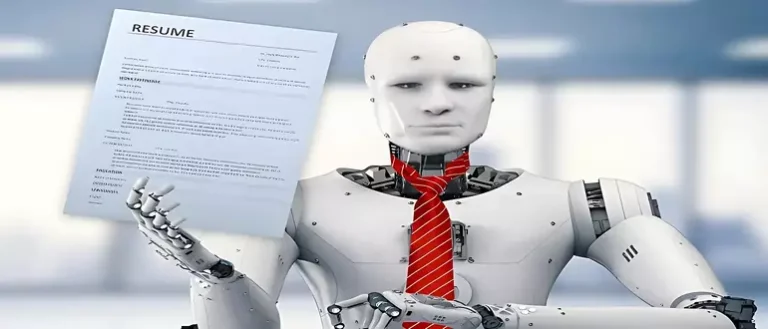Artificial Intelligence (AI) is rapidly transforming how businesses operate, and the accounting field is no exception. With AI’s increasing sophistication,
some experts predict that intelligent machines may replace accountants. However, the question remains: will AI truly replace accountants or enhance their abilities?
In this blog post, we will explore the potential impact of AI on the accounting profession, skills that should learn by accountants to be relevant to ai, and the pros and cons of AI.

Will AI Replace Accountants?
No, AI will not replace accountants. While AI can automate manual processes and improve accuracy in accounting, it has limitations in understanding complex regulations and ethical considerations.
Accountants play a critical role in analyzing and interpreting financial data, advising clients, and providing strategic planning, which requires human insight and
decision-making abilities that AI cannot replicate. AI is a tool that can enhance the work of accountants and allow them to focus on higher-level tasks.
What Are The Future Impacts Of AI On The Accounting Industry?

AI and Data Analysis in Accounting
With the advent of AI, accounting firms will have access to more advanced data analysis tools. AI can help analyze financial data and identify patterns that may be difficult for humans to see.
This technology can also help identify potential risks and opportunities for businesses, giving them a competitive edge in the marketplace.
Fraud Detection with AI
AI can also play a critical role in fraud detection in the accounting industry. By using AI-powered algorithms, accounting firms can detect patterns that may indicate fraudulent activity.
This technology can help detect errors and irregularities in financial statements and other documents, which can help prevent fraudulent activities.
Automation in Accounting with AI
Automation is another area where AI is poised to make significant impacts in the accounting industry. With the help of AI, repetitive tasks, such as data entry,
can be automated, freeing up time for accountants to focus on more complex tasks that require human intervention.
This technology can also help reduce errors in accounting processes, leading to more accurate financial statements.
Enhanced Accuracy and Efficiency
AI algorithms are designed to analyze data and identify patterns that humans may miss, reducing the risk of errors in accounting processes.
AI-enabled tools also process data faster and more accurately than humans, reducing the time needed for financial statement analysis and auditing tasks.
This enhanced accuracy and efficiency can lead to cost savings for accounting firms and provide more value to clients.
Cost Reduction
AI can significantly reduce the cost of accounting services. By automating routine tasks, accounting firms can reduce labor costs and increase efficiency.
Moreover, AI-powered accounting software can analyze large volumes of data in a short time, reducing the need for manual labor and human intervention.
Improved Decision Making
AI can provide accountants with powerful insights and analysis that can improve decision-making processes. With AI-powered predictive analytics,
accountants can make informed decisions based on accurate data and projections.
This can help businesses make better decisions, optimize their financial performance, and reduce the risk of financial losses.
New Career Opportunities
The rise of AI in the accounting industry also creates new career opportunities. Accounting professionals with AI expertise will be in high demand as firms seek to integrate AI into their operations.
Moreover, AI can also help accounting firms expand their services, creating new revenue streams and opportunities for growth.
What Skills Should Accountants Learn To Stay Relevant In The AI Age?

Data Analysis and Interpretation
One of the most important skills for accountants in the AI age is data analysis and interpretation. With AI tools becoming increasingly prevalent,
the ability to analyze and interpret large amounts of data is becoming more important than ever.
Accountants must be able to understand and interpret data in order to make informed decisions and provide value to clients.
Programming and Data Science
As AI tools become more advanced, it’s becoming increasingly important for accountants to have a basic understanding of programming and data science.
These skills can help accountants work more efficiently and effectively with AI tools, allowing them to provide more value to clients.
Soft Skills
While technical skills are important, it’s also important for accountants to have strong, soft skills. In the AI age, accountants will need
to be able to communicate effectively with clients and colleagues and be able to work collaboratively on projects. Strong interpersonal skills will be key to success in the AI age.
Strategic Thinking
As AI tools become more prevalent in the accounting industry, accountants will need to be able to think strategically about how to use these tools to provide value to clients.
Accountants who are able to think strategically and understand the potential of AI tools will be in high demand in the AI age.
Business Acumen
Finally, accountants in the AI age will need to have a strong understanding of business acumen. They must be able to understand how businesses operate
and how accounting fits into the bigger picture. By understanding the needs of their clients, accountants can provide more value and stay relevant in the AI age.
The Pros Of Using AI Over Human Accountants

Efficiency:
One of the primary benefits of using AI for accounting is its efficiency. AI can quickly and accurately perform repetitive and time-consuming tasks,
freeing human accountants to focus on more complex and strategic tasks. This can lead to increased productivity and cost savings for your business.
Accuracy:
AI is programmed to follow the rules and make calculations accurately, reducing the likelihood of errors. This can lead to more accurate financial reporting,
which is crucial for businesses that need to make important financial decisions based on their data.
Speed:
AI can analyze large amounts of data quickly, providing businesses with real-time insights into their financial performance.
This can help businesses make faster decisions and stay ahead of their competition.
The Cons Of Using AI Over Human Accountants

Cost:
While AI can be cost-effective in the long run, the initial investment can be expensive for some businesses.
AI requires specialized software and hardware and trained professionals to implement and maintain the technology.
Lack of Human Interaction:
AI lacks the ability to provide the personalized touch and human interaction that human accountants can offer. This can be particularly important for small
businesses or individuals who may prefer to work with a human accountant they can trust and develop a relationship with.
Limited Decision-Making:
AI is limited by its programming and lacks the ability to make decisions based on intuition or creativity.
This can be a disadvantage when dealing with complex accounting issues that require a more nuanced approach.
FAQs
What Tasks Can AI Currently Perform In The Field Of Accounting?
AI can currently perform tasks such as data entry, transaction coding, financial reporting, and variance analysis. It can also analyze large data sets and detect anomalies or patterns that might otherwise go unnoticed.
Will AI Completely Replace Accountants In The Future?
AI will only partially replace accountants in the future. While AI can automate many tasks, it cannot completely replace the human judgment and critical thinking required for certain tasks such as audit and tax preparation.
How Can Accountants Prepare For The Increasing Use Of AI In Their Field?
Accountants can prepare for the increasing use of AI by developing their technical skills and keeping up to date with new technologies. They can also focus on developing their expertise in areas such as analysis and strategy development, which require human judgment and critical thinking.
Are There Any Ethical Concerns Related To The Use Of AI In Accounting?
Yes, there are ethical concerns related to the use of AI in accounting. One concern is the potential for bias in the algorithms used in AI systems. Another concern is the possibility of job displacement and the impact on the workforce.
How Can Companies Ensure The Ethical Use Of AI In Accounting?
Companies can ensure the ethical use of AI in accounting by developing policies and procedures for the use of AI and by ensuring that their AI systems are transparent and accountable. They can also involve employees and stakeholders in developing and implementing AI systems.
Conclusion
AI is transforming the accounting industry, but it’s not likely to replace accountants altogether. While automation can handle tasks such as data entry and
reconciliation, human judgment and expertise are still essential for complex analysis and decision-making. Accountants who embrace AI and focus on developing
their skills will remain in demand and play a vital role in ensuring the accuracy and integrity of financial information.





